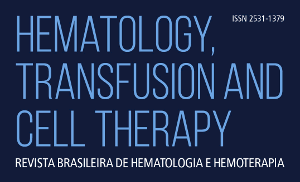In this issue of Hematology, Transfusion, and Cell Therapy Andrade et al.11 Andrade AR, Leitão DS, Paz IP, Evangelista TR, de Mello VJ, Hamoy M. Analysis of imatinib adherence in chronic myeloid leukemia: a retrospective study in a referral hospital in the Brazilian Amazon. Hematol Transfus Cell Ther. 2019. 41(2):106-13. reported the analysis of imatinib adherence in 120 patients with chronic myeloid leukemia from a single institution. They follow those patients for almost a year (360 days) where 44.1% lived near the referred hospital, 20.8% up to 70 km and the remaining cohort from 70 to more than 600 km from the same hospital. The adherence was quantitated by PDC (Proportion of Days Counted) that is, in other words, the total number of days that medication was supplied by the total number of days of observation. Although this methodology is not very accurate for reasons mentioned by Andrade et al. that method is easy to apply and cost less. If PDC reached 80% or more, the patient was considered adherent otherwise nonadherent. The adherence and non-adherence to imatinib treatment was 77.5% and 22.5% respectively. The adherence or non-adherence did not correlate with the distance range from the origin to the hospital neither the scholarship level, age or gender. The main reasons for non-adherence when was identifiable were disinterest (37.5%), lack of medication (6.25%) and side effects (6.25%) resulting in the abandonment of treatment. The results presented by Andrade et al. are in concordance with other studies conducted in counties with a higher Human Development Index like Belgium, Britain, and Taiwan which showed 30%, 26%, and 27% of non-adherence respectively.22 Noens L, van Lierde MA, De Bock R, Verhoef G, Zachée P, Berneman Z, et al. Prevalence, determinants, and outcomes of nonadherence to imatinib therapy in patients with chronic myeloid leukemia: the ADAGIO study. Blood. 2009;113(22):5401-11.
3 Marin D, Bazeos A, Mahon FX, Eliasson L, Milojkovic D, Bua M, et al. Adherence is the critical factor for achieving molecular responses in patients with chronic myeloid leucemia who achieve complete cytogenetic responses on imatinib. J Clin Oncol. 2010;28(14):2381-8.-44 Chen TC, Chen LC, Huang YB, Chang CS. Imatinib adherence associated clinical outcomes of chronic myeloid leukaemia treatment in Taiwan. Int J Clin Pharm. 2014;36(1):172-81. The importance of that study although retrospective was to show that it is possible to conduct good clinical practice even in the most remote regions in Brazil that has continental characteristics.
-
☆
See paper by Andrade AR et al. on pages 106-113.
References
-
1Andrade AR, Leitão DS, Paz IP, Evangelista TR, de Mello VJ, Hamoy M. Analysis of imatinib adherence in chronic myeloid leukemia: a retrospective study in a referral hospital in the Brazilian Amazon. Hematol Transfus Cell Ther. 2019. 41(2):106-13.
-
2Noens L, van Lierde MA, De Bock R, Verhoef G, Zachée P, Berneman Z, et al. Prevalence, determinants, and outcomes of nonadherence to imatinib therapy in patients with chronic myeloid leukemia: the ADAGIO study. Blood. 2009;113(22):5401-11.
-
3Marin D, Bazeos A, Mahon FX, Eliasson L, Milojkovic D, Bua M, et al. Adherence is the critical factor for achieving molecular responses in patients with chronic myeloid leucemia who achieve complete cytogenetic responses on imatinib. J Clin Oncol. 2010;28(14):2381-8.
-
4Chen TC, Chen LC, Huang YB, Chang CS. Imatinib adherence associated clinical outcomes of chronic myeloid leukaemia treatment in Taiwan. Int J Clin Pharm. 2014;36(1):172-81.
Publication Dates
-
Publication in this collection
10 June 2019 -
Date of issue
Apr-Jun 2019

